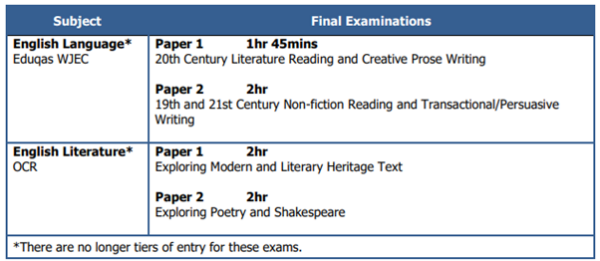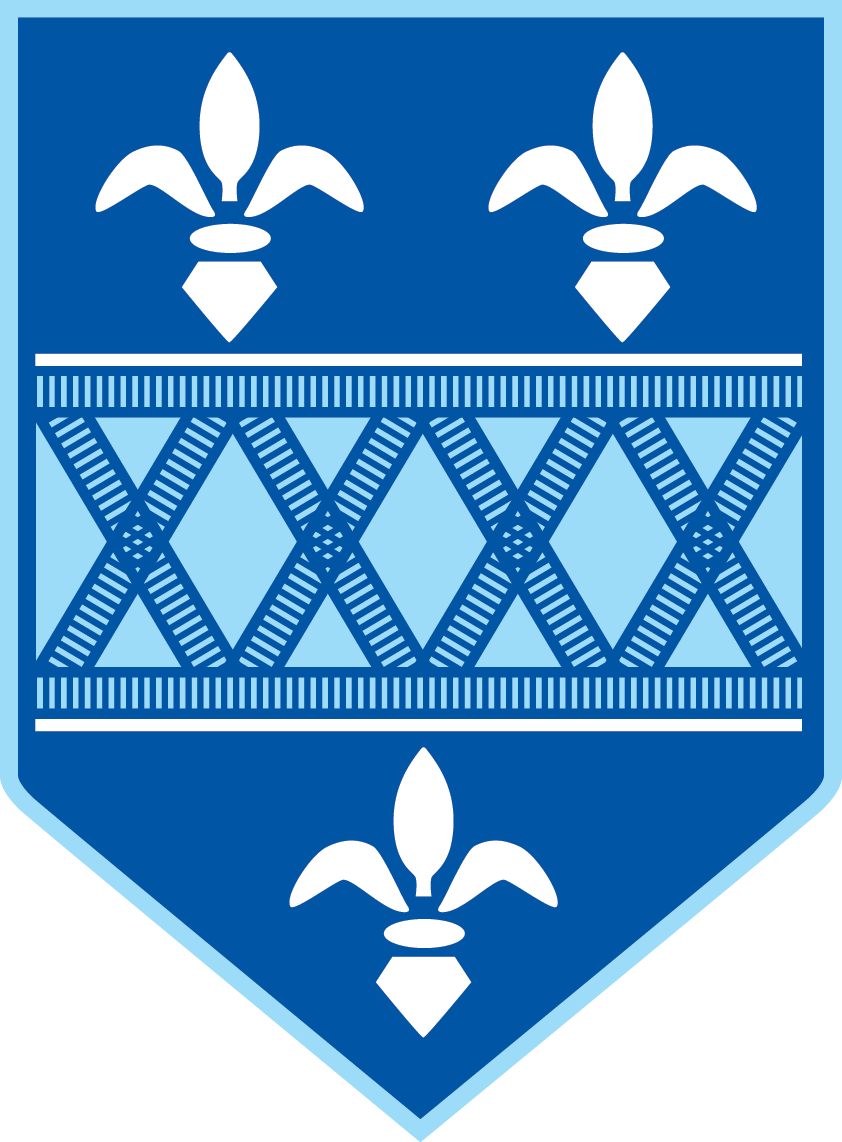English is timetabled at Key Stage 4 as a single subject, taught in nine periods over two weeks. Students study a broad, challenging and exciting range of material that, for most, leads to the acquisition of two qualifications: GCSE English Language and GCSE English Literature. The exam specifications are Eduqas and OCR.
The courses are varied and allow students to make productive use of the foundational skills built through the teaching in Years 7-9. A range of units are taught over the two separate qualifications, yet the skills acquired in every unit are of use to each other. The texts and topics chosen within these units extend and stretch more able pupils while remaining accessible to all students.
The reading of core texts is complemented by the use of film, theatre and drama in the classroom enabling students a deep study of character and plot. Students are encouraged to develop a critical voice in both their verbal interactions and written work. Teaching is innovative and use of ICT is integrated through research, presentations and use of online tools to further assist and enable learning.
Students will enjoy both the depth and breadth of texts they will study, which may include R.L Stevenson’s Strange Case of Dr Jekyll and Mr Hyde, alongside more modern novels such as George Orwell’s Animal Farm.
The keys to success in English are accurate writing, wider reading and an excellent attendance record.
Accurate Writing
Accurate writing comes from planning and proof-reading. A simple form of planning is to PAF (purpose, audience and form)
| Genre |
Audience |
Purpose |
Newspaper opinion
column |
Times’ newspaper readers |
To argue that pop videos show women in a stereotypical and exploitative way |
| Essay |
Assessor/teacher |
To discuss how the theme of power is presented in ‘Macbeth’ |
Understanding is the first step to completing planning effectively. If your child is ‘stuck’ on a piece of work, ask to see their planning. Students should practise proof-reading written work. Without proof-reading, careless technical errors will mean a student loses marks for easily corrected spellings, capital letters and punctuation. We do not suggest that you correct your child’s work but encouraging them to read work aloud to you will help them to spot any mistakes. Offering general advice such as, “You seem to be repeating yourself there,” is also useful. It is important to remember that SPaG (spelling, punctuation and grammar) is worth 20% of the English Language qualification and 5% of English Literature qualification.
Handwriting is important in examinations. Encourage your child to check that capital case and lower-case rules are followed (e.g. Gg Hh Dd). They should also be careful to size their lettering correctly and to join up their handwriting. Recent educational research shows that, for girls, a failure to join up correctly is associated with an average drop of a whole grade in GCSE English.* This will also help students to write quickly and to avoid losing marks for technical inaccuracy because it is unclear to the assessor if they are using capital letters correctly.
*(David Barnett, Jane Galbraith, Caroline Roaf, & Sue Rutherford, Ford Williams School, Oxford Road, Thame, Oxon OX9 2QA)
Wider Reading
It is important for students to develop their taste for reading in Key Stage 4 by reading many different types of text as this will not only help to enrich their vocabulary, but it will also assist them in crafting narrative prose for the Language paper. Some students let their private reading drop under pressure of homework, but it is important to recognise the wealth of benefits that reading for pleasure brings to students’ literacy and communication skills. Please continue to encourage your child to read novels, poems, magazines and newspapers. Although plays can be read, watching in a theatre or on screen is a more enjoyable and engaging way to experience drama. Please keep sharing the books you enjoy with your child, talking about what they read and watch and reminding them to visit a public library. The library at LPGS was recently voted one of the top ten secondary school libraries in England; there is an excellent selection of appropriate fiction and non-fiction available there too. Our librarians can recommend books to your child. A suggested reading list will be distributed by English teachers to Year 10 classes.
One examination set text is provided in Year 10 which students may keep. It is the OCR Anthology ‘Towards a World Unknown’. Other examination and assessment texts should be purchased when required. Having their own copy of a text will enable students to annotate and underline passages, which will in turn, support them during revision.
Exam and Assessment Information

All exam papers for English and English Language are now closed book examinations. Students will be expected to use quotation and references to their studied text in their answers.


